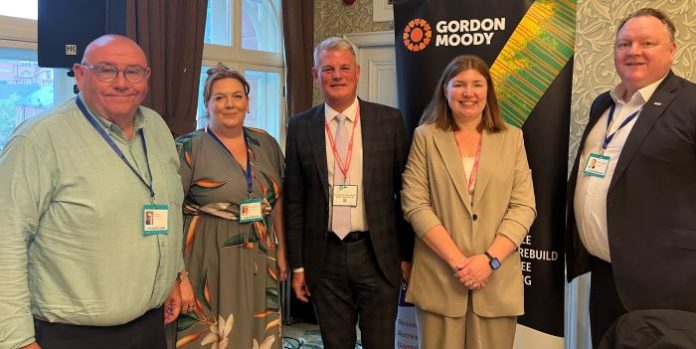Given that the Gambling Act review was one of the 2019 election pledges of the UK’s governing Conservative Party, it is unsurprising that it got a mention at the party’s recent conference.
Although overshadowed in much of the media by issues such as the HS2 cancellation, the review was the subject of a panel on 3 October titled “The Gambling White Paper: Implications for Treatment’.
After being promised four years ago and commencing two years ago, and being overseen by no less than nine Ministers – both Secretaries of State and Parliamentary Undersecretaries – the White Paper was finally published in April, with a key and highly-anticipated recommendation being a mandatory research, education and treatment (RET) levy.
Speaking on the panel in Manchester this week, Dr Jane Rigbye, CEO of Ygam, asserted to assembled MPs and journalists that the White Paper should be ‘smart’ and recognise the differences between the expertise and stakeholders across the three disciplines of RET.
As one of the largest RET charities in the UK, with its focus rooted in education, Ygam would be one of the key beneficiaries of mandatory industry funding – but Rigbye informed legislators that: “Charities are discovering that the publication of the white paper has stemmed uncertainty.”
She continued: “The lack of clarity around the levy means many donors are now reluctant to commit to funding until the consultation period is clearer, and the new system is established.
“During this period, there is a risk that services provided by organisations who rely on the current system could be disrupted or discontinued.”
More clarity may be on the horizon for the RET sector and betting at large, however, as the UK Gambling Commission (UKGC) and DCMS are currently engaged in consultations with the industry and treatment stakeholders.
The first round of consultations began in July and will end on 18 October, with the focus having been on financial risk and vulnerability, improving consumer choice on direct marketing, particularly regarding cross selling; and strengthening age verification in venues.
RET will be one of the key focal areas of the next round of consultations, which are due to commence during the winter – Dr Rigbye, Ygam and other RET individuals and organisations can expect some more clarity eventually it seems, although this will likely be in the new year.
But what kind of clarity and conclusions does YGAM want from these consultations? Rigbye urged policymakers not to overlook the contribution made by education organisations in countering gambling harm.
“All too often we see preventative education being overlooked in the debate or, in some cases and more worryingly, work to increase awareness of treatment availability being used to demonstrate investment in prevention.
“Ygam argues that investment would be better off made upstream, so that less people need those treatment services in the first place.”
Lastly, Rigbye also had some comments to make against the perceived closeness of some RET organisations to the industry, with some commentators having criticised an ‘overreliance’ on industry funding.
“There appears to be a perception from some that organisations working in the current system are not independent from industry funders,” Rigbye continued.
“This misguided narrative must not influence the new infrastructure and processes. All organisations seeking funding should be measured on the quality, scalability, and impact of their services.”
Ygam was not the only RET group represented on the panel, with Gordon Moody – which organised the session alongside Green Pen Consulting – also featuring via CEO Matthew Hickey and Head of Service Development, Sarah Forshaw.
Also appearing was Stuart Andrew, the current DCMS Secretary of State, charged with oversight of the review and its implementation, who last month emphasised the need for the UK to improve its gambling harm research capabilities.




























